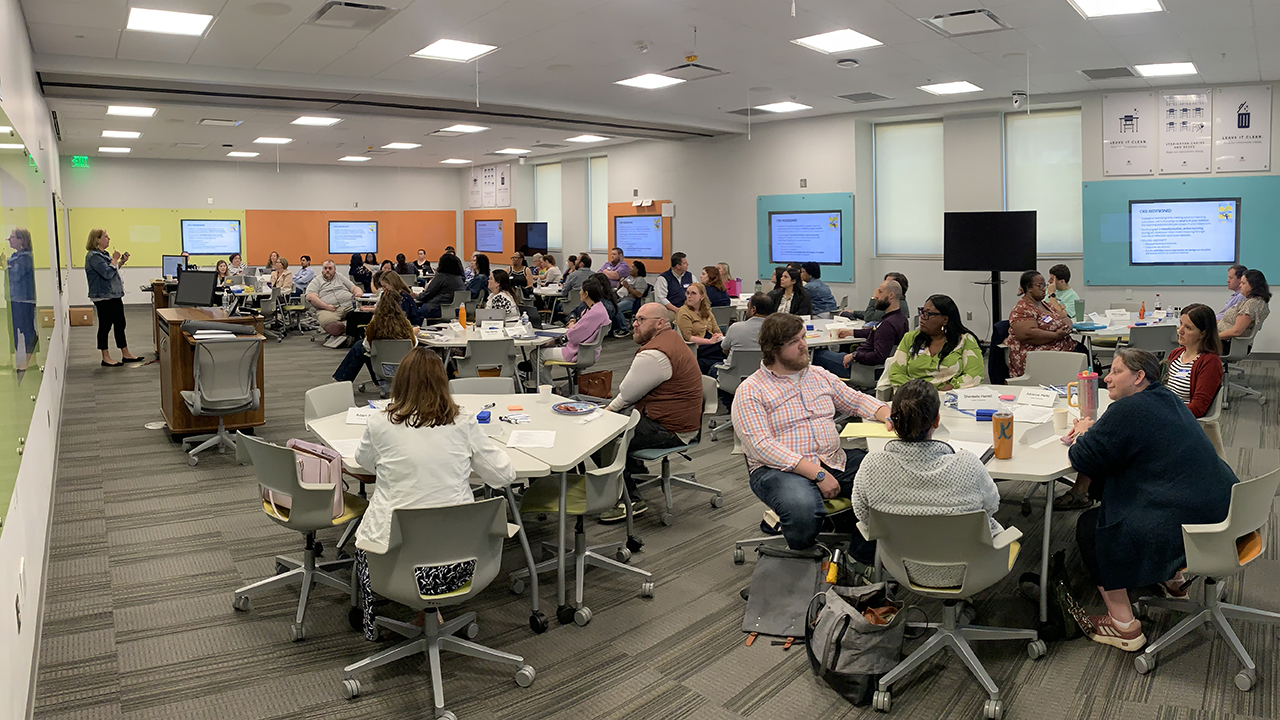content body
Auburn’s Biggio Center for the Enhancement of Teaching and Learning (Biggio Center) marked the 10th anniversary of its Course (Re)Design (CRD) program this summer. The event welcomed more than 60 faculty members for a week of collaboration, creativity and student-centered course development.
Guided by the theme “Design Matters,” the 2025 CRD program encouraged faculty to think differently about how courses are created and delivered. Through immersive, student-like experiences, participants explored ways to foster empathy and deepen student engagement.
“Learning how to make our classrooms more comfortable and inclusive environments, where the student experience is truly at the center, was a major takeaway,” said Katelyn Lawson, assistant professor in crop, soil and environmental sciences. “We focused on what it means to ensure students are actually learning in our classes.”
Rather than relying solely on traditional course planning frameworks, the program emphasized a human-centered approach. Faculty engaged in a variety of interactive activities designed to spark creativity, inspire fresh perspectives and encourage more meaningful connections between instructors and students.
In addition to engaging faculty from across campus, the program also fostered cross-institutional collaboration. Through partnerships with external organizations such as the Air University Innovation Accelerator (AUiX), participants were able to exchange ideas across various educational settings and broaden their design perspectives.
“CRD gave us space to explore how to design learning experiences that are not just instructional but impactful experiences that matter to both students and faculty,” said Jeremy Van Egmond, chief of the Eagle Institute and Education Lab for AUiX at Maxwell Air Force Base in Montgomery, Alabama. “It felt like a true partnership where we could reimagine teaching together.”
This year’s program also featured themed cohorts focused on timely topics such as generative AI, Adobe Creative Cloud, large-enrollment course design and gamification. Each group was guided by experienced facilitators, many of whom are CRD alumni, who fostered collaboration, experimentation and supportive dialogue.
“This marked the 10th anniversary of Course (Re)Design, and what made this year especially significant was our shift toward exploring the processes of learning and how we assess those processes, not just final products,” said Lindsay Doukopoulos, associate director of educational development at the Biggio Center. “It was an exciting, creativity-filled week, and we look forward to seeing the impact in classrooms across campus.”
The Course (Re)Design program is one of the Biggio Center’s signature initiatives, empowering faculty to transform their teaching through reflective design and evidence-based practices.





